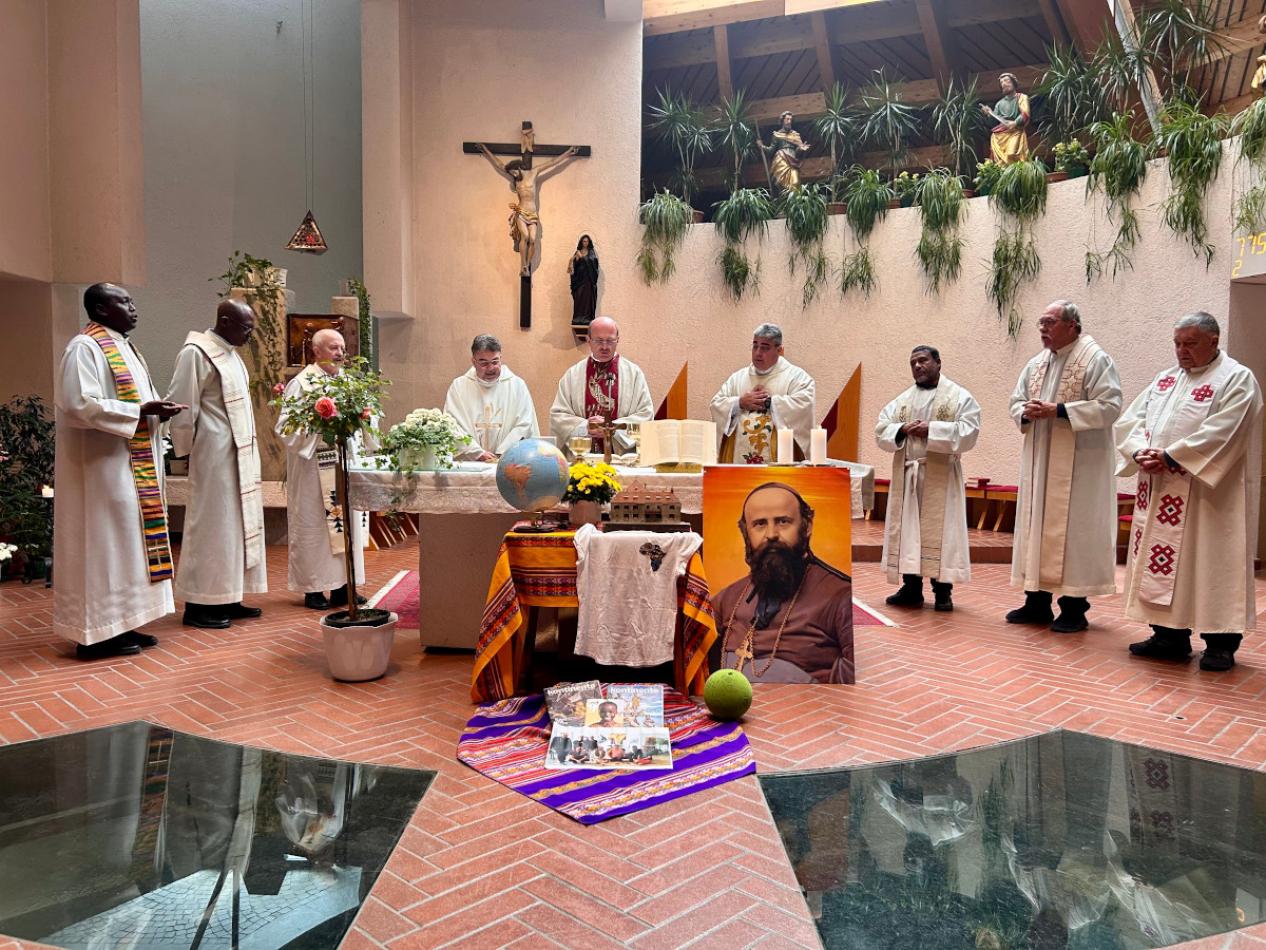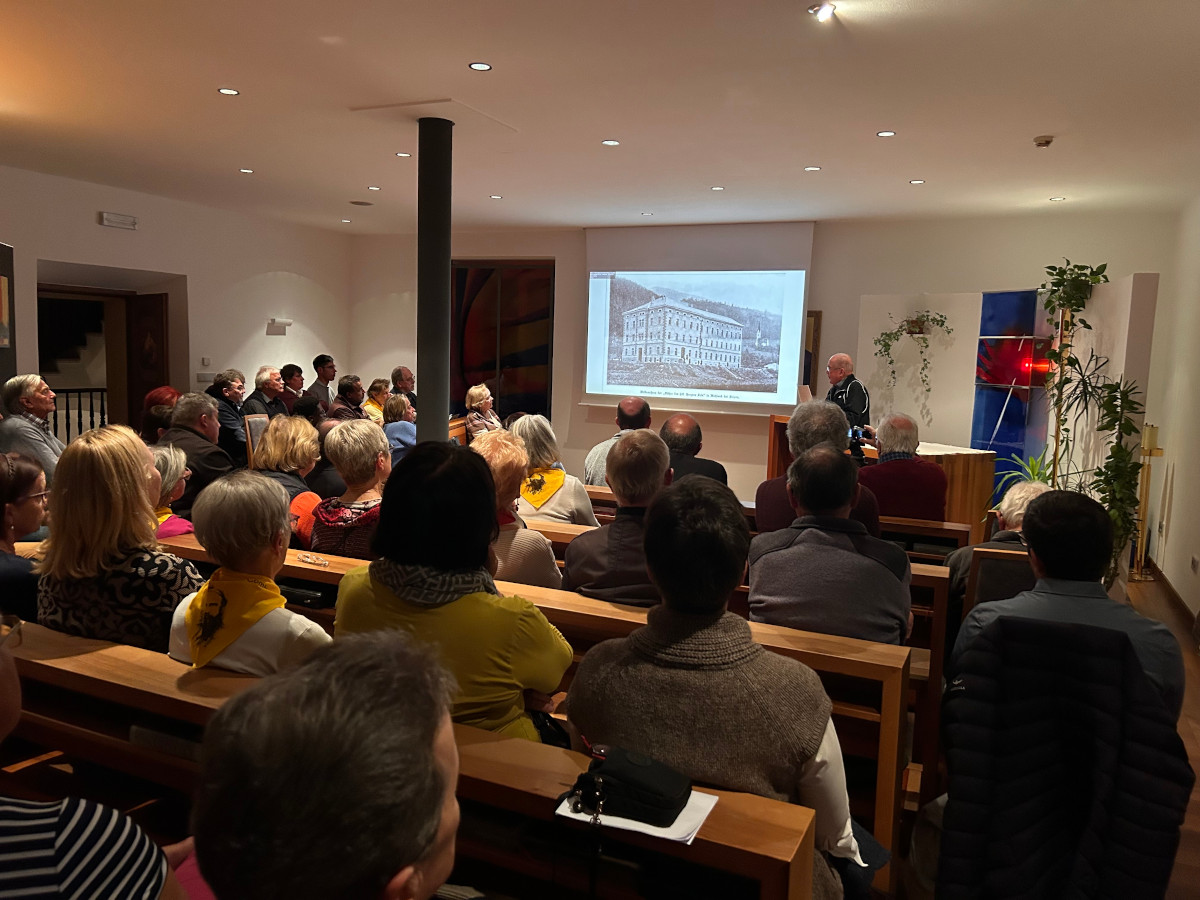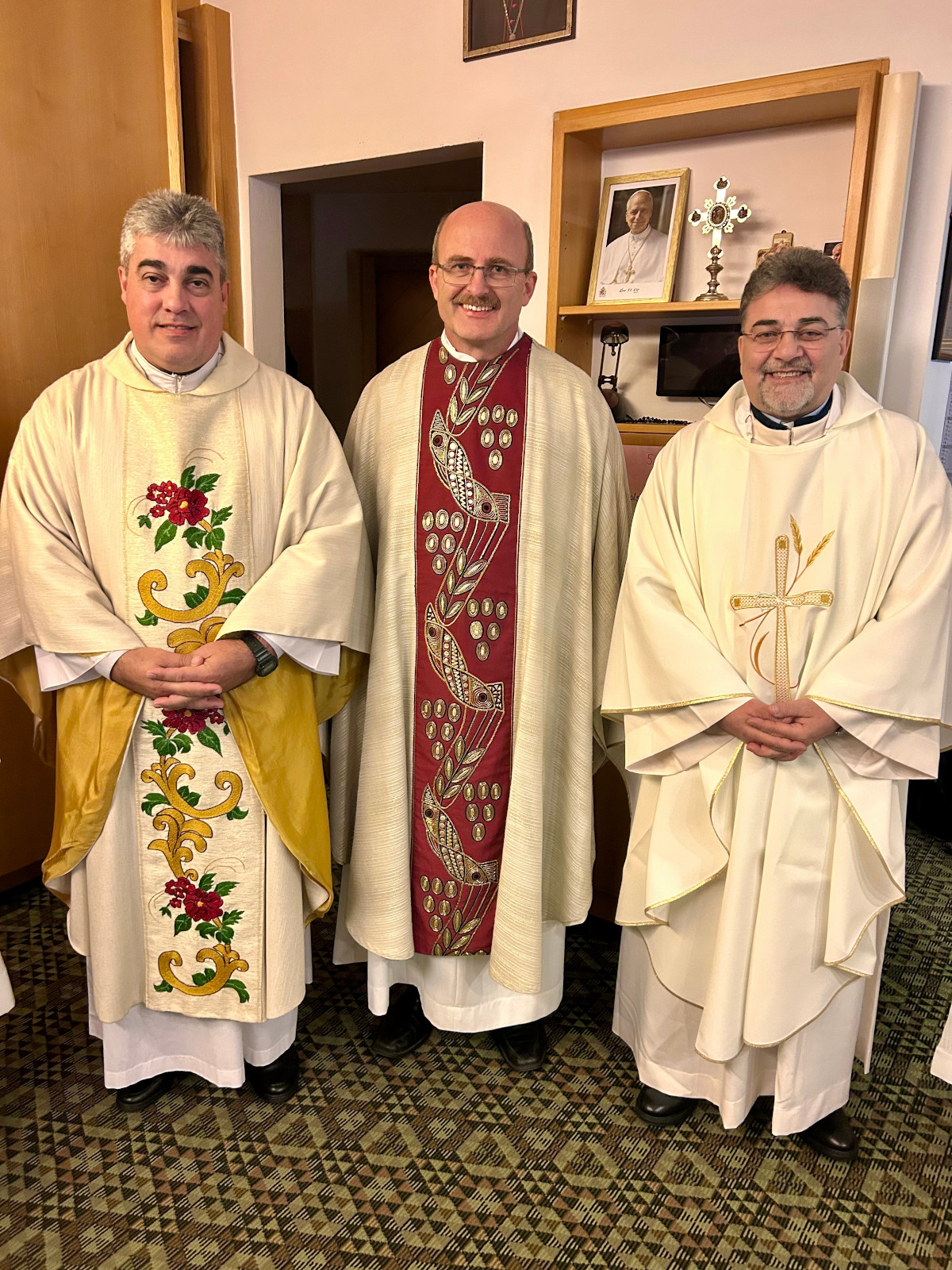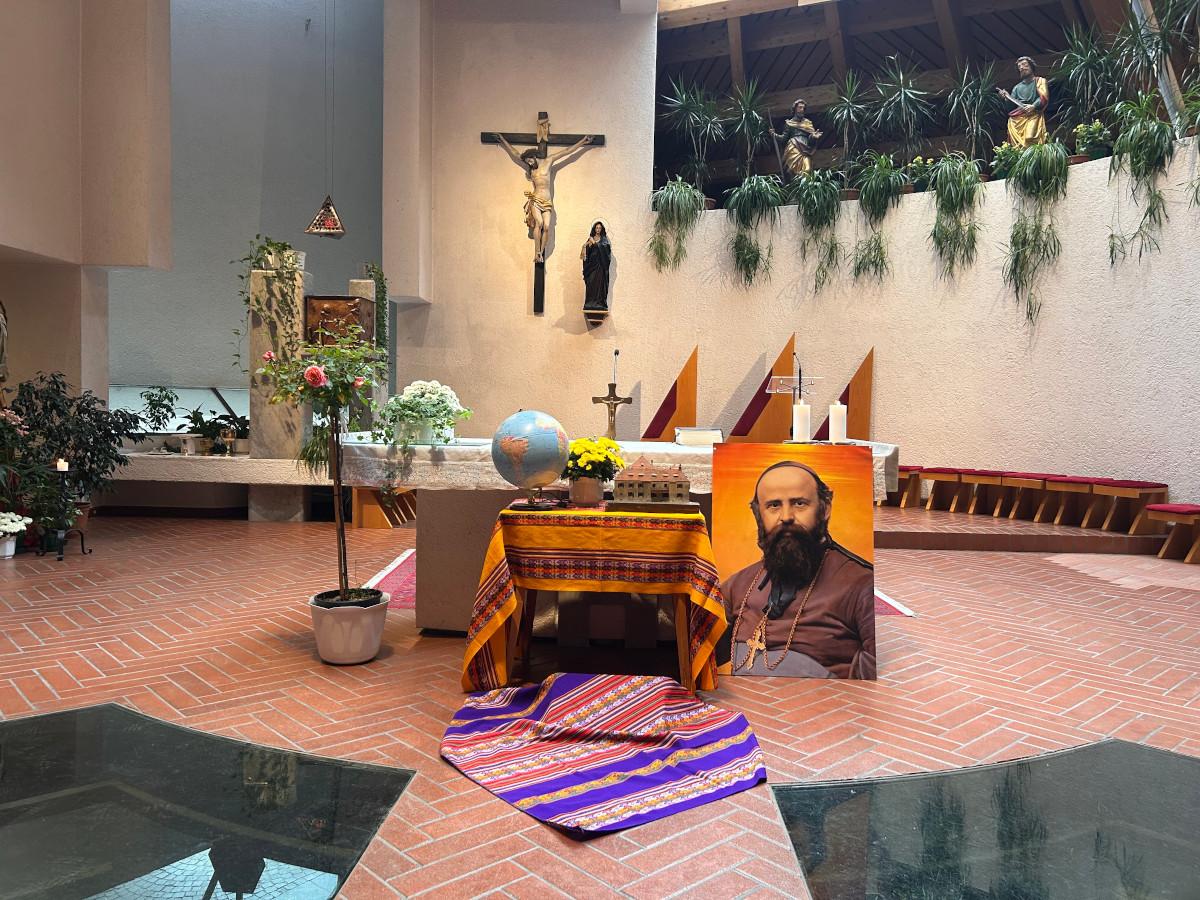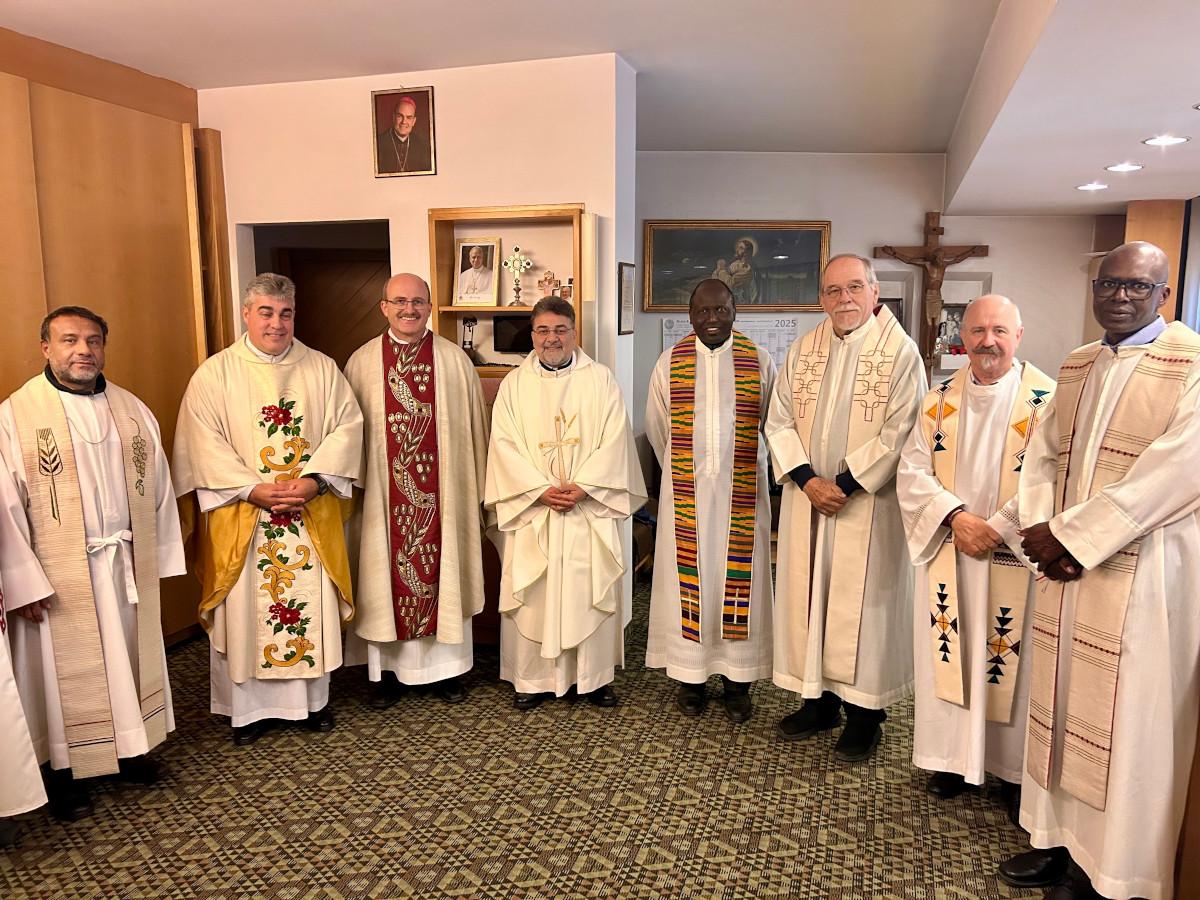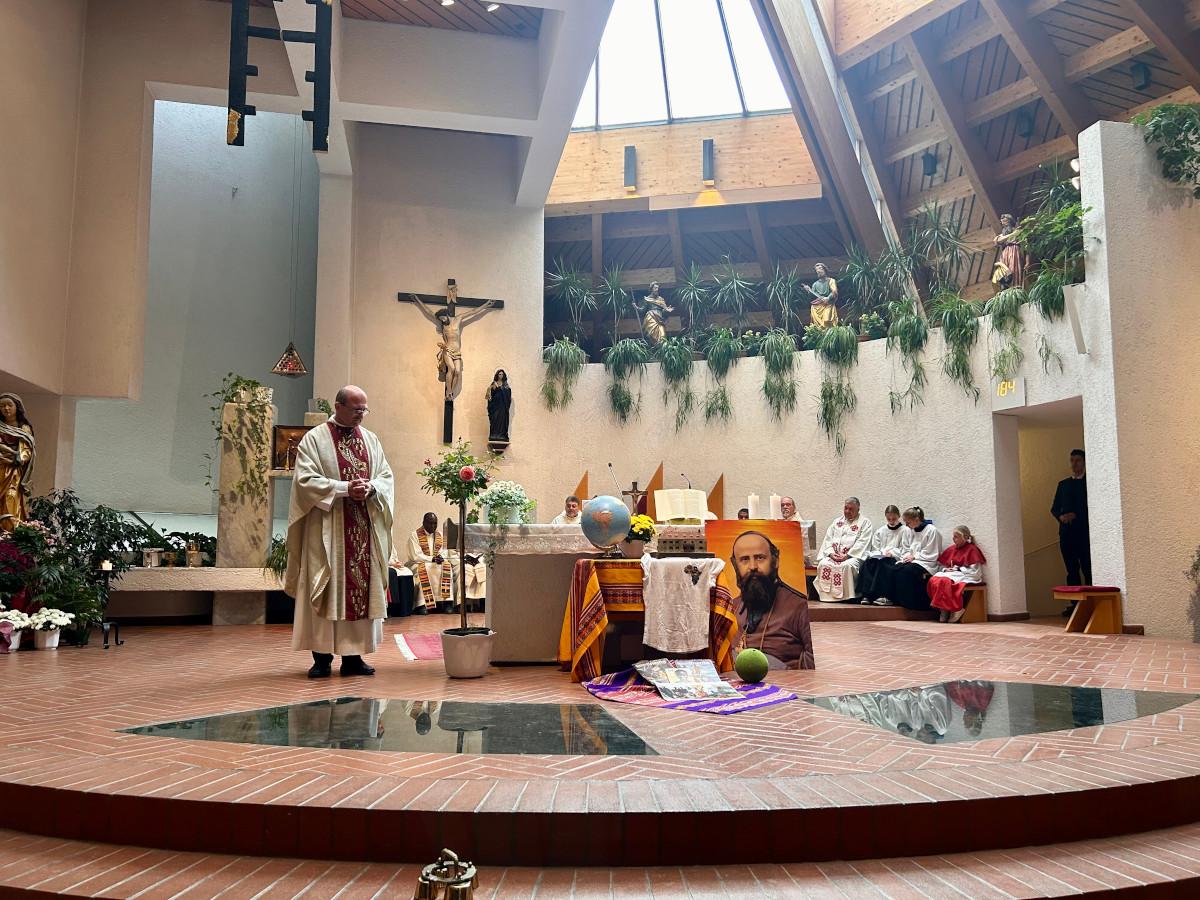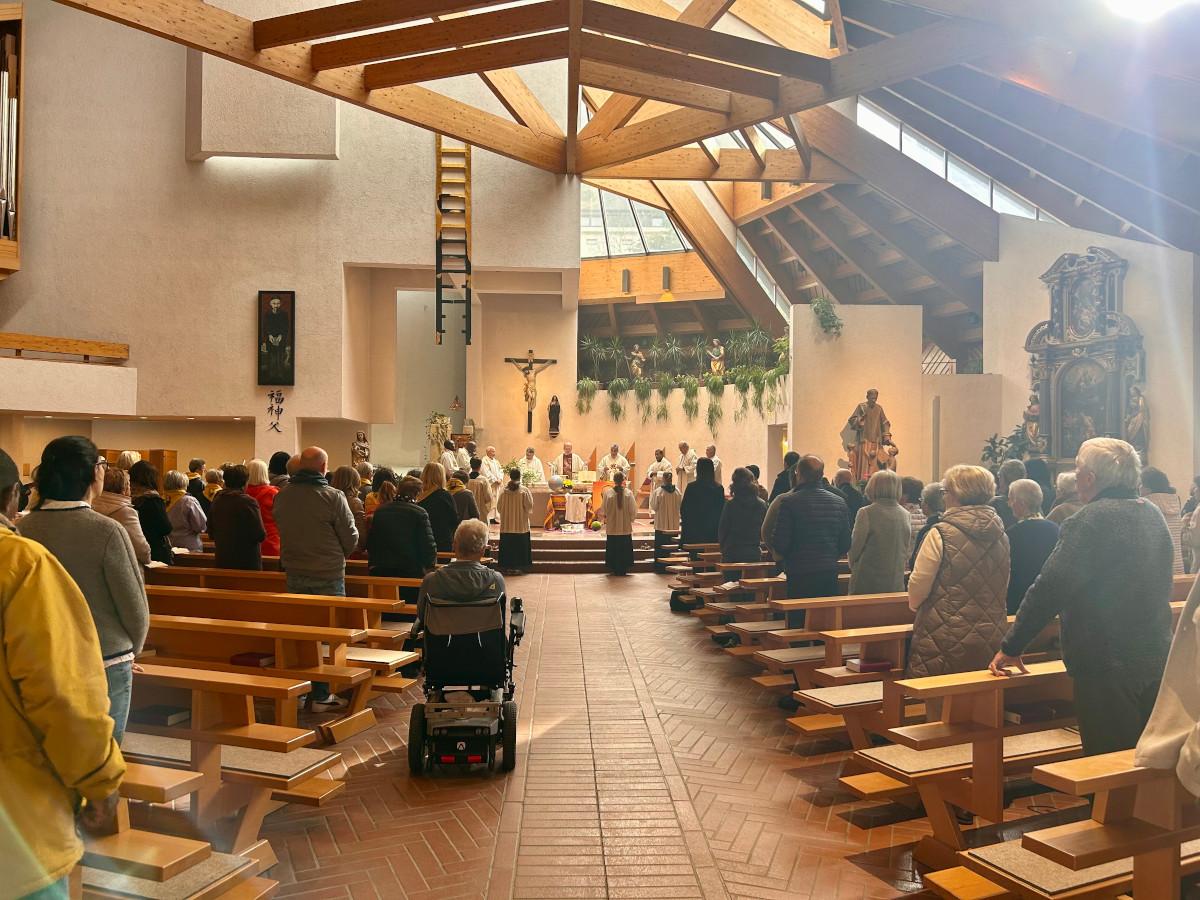Daniel Comboni
Comboni Missionaries
Institutional area
Other links
Newsletter
Wednesday, October 22, 2025
The German-Speaking Province (DSP) of the Comboni Missionaries celebrated the 130th anniversary of its presence in Bressanone-Milland with two days of festivities, on 18th and 19th October, in the presence of the Superior General, Fr. Luigi Codianni, and the Vicar General, Fr. David Domingues. About thirty people from Graz and its surroundings – where the Institute is engaged in pastoral work – joined the celebration as part of their parish pilgrimage to North Tyrol and South Tyrol.
The anniversary opened on Saturday, 18th October, with a gathering in the chapel of our house, where Fr. Reinhold Baumann retraced the 130 years of Comboni presence in Bressanone. In his address, he recalled how, at the end of the 19th century, the Austro-Hungarian Empire was the protective power of the missions in Sudan. When Verona and Limone sul Garda, the birthplace of St. Daniel Comboni, became part of Italy in 1866, the Habsburg monarchy expressed a strong desire to have, if not the motherhouse, at least an important house of the Comboni Institute within its own territory.
Until then, all candidates for the missions – coming mainly from the territories of the Austro-Hungarian Empire and from Germany – had to learn Italian in order to study theology in Verona. Because of the so-called ‘Jesuit Laws’, it was not possible to found religious communities in Germany before the First World War. However, the imperial government in Vienna insisted that the Comboni Missionaries should have at least one large house in a German-speaking city.
Thus, in May 1895, a 14-hectare plot of land was purchased in Milland, on the outskirts of Bressanone. Since the Mill Hill Missionaries already had a house in the city, the Comboni Missionaries were initially forbidden to recruit candidates in South Tyrol. Consequently, most of the students came from what are now Austria, Slovenia, and Germany.
Since then, the house has become an important centre for missionary formation, which in its early decades hosted an average of 65 members among priests, brothers, scholastics, and novices. The two World Wars deeply affected the German-speaking confrères: many were drafted into the army and never returned.
The highlight of the jubilee was the solemn bilingual Mass – in German and Italian – celebrated on Sunday, 19th October, in the parish church of Milland, dedicated to St. Joseph Freinademetz. The Provincial Superior, Fr. Hubert Josef Grabmann, presided over the celebration, and the homily was delivered by the Superior General, who reflected on mission as the very heart of Comboni identity.
Among the concelebrants, in addition to the Vicar General, were also Fr. Radol Austine Odhiambo, General Councillor; Fr. Otii Alir Moses (Graz); Fr. Sierra Moreno José Aldo (South Africa); Fr. Franz Weber; and Frs. Tullio Donati (Trento, Italy) and Donato Benedetti (Limone, Italy), bearing witness to the strong bond with the Italian Province.
After the Mass, participants gathered for a standing reception. The three scholastics from the formation community in Graz – Tandir Blondel Ilolube (CN), Félix Jesús Daniel Osuna (M), and Wilson Njoroge Wairimu (KE) – together with a Ugandan Comboni Lay Missionary residing in South Tyrol, had prepared chapati and maandazi, adding an African flavour to the fraternal agape, which fittingly coincided with World Mission Sunday.
The celebration also carried a symbolic meaning: the parish church of Milland had been consecrated exactly forty years earlier, on 19th October 1985, ten years after the beatification of Josef Freinademetz, who was canonised in 2003 together with St. Daniel Comboni.
The two days of festivities concluded with a community lunch in the large hall of the Comboni house, marked by songs, friendship, and gratitude for a long history of missionary commitment.
On the occasion of the anniversary, Radio Maria Südtirol broadcast an interview with Fr. Franz Weber on the theme ‘Mission: The Central Theme of My Life’.
Special thanks go to Br. Friedbert Tremmel, the Comboni community of Bressanone-Milland, and all the staff for the preparation, organisation, and success of these days of celebration and fraternity.

